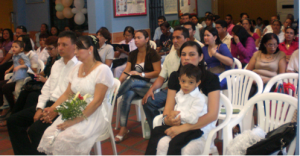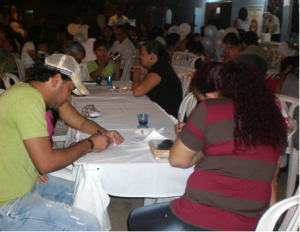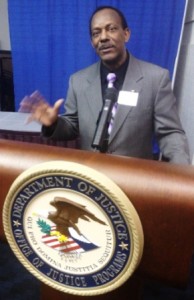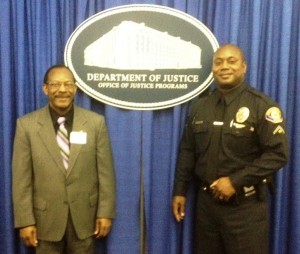Dear brothers and sisters in Christ,
 As those called to be God’s fellow workers (1 Cor. 3:9) and Christ’s ambassadors (1 Cor. 5:20), we are challenged to communicate to the world the gospel of God’s grace in Christ. Our communication occurs in many forms, including words and acts through which we present the truth of God’s love for all humanity. It is always a challenge to communicate clearly, and so we rely on the work of the Holy Spirit, even as we offer to him our best efforts.
As those called to be God’s fellow workers (1 Cor. 3:9) and Christ’s ambassadors (1 Cor. 5:20), we are challenged to communicate to the world the gospel of God’s grace in Christ. Our communication occurs in many forms, including words and acts through which we present the truth of God’s love for all humanity. It is always a challenge to communicate clearly, and so we rely on the work of the Holy Spirit, even as we offer to him our best efforts.
As we know, the gospel can be obscured and misrepresented. Our goal is to communicate it clearly and simply, yet in ways that do not strip it of its great depth and richness. This is a challenge. Indeed, verbal and written communication is always challenging, particularly in a world where culture, and the languages that shape it, are rapidly morphing.
“Churchy” words and phrases that are familiar to us as evangelical Christians may be unintelligible to non-Christians and even to Christians in other traditions. This is humorously addressed in a Ministry Communicorps article titled “Churchy Clichés…and what they really mean.” Below are excerpts that I think you’ll find both humorous and enlightening.
Churchy Word or Phrase: Its Real Meaning
- Relevant: Something you might enjoy that looks and sounds a lot like a popular TV series, ad campaign or pop culture icon
- Authentic: In some aspects, as messed up as you are
- Community: A group of people with little in common who all attend the same megachurch
- Community Event: Food served in a cul-de-sac, with face painting for children
- Revolution: Event or movement that most people will not like, but a few will really like a lot
- Driven: Moving forward based on a book-inspired philosophy that has at least four or five key steps
- Missional: Same as Driven except steps related in some way, shape or form to something Jesus did in the gospels
- Focus: Something one or more church leaders believe is important enough to cancel other stuff in order to devote everyone’s full energy and resources to it
- Emergent: We’re making this up as we go along
- Connect: Meet
- Network: Meet
- Engage: Meet
- Experience: See or Hear
- Belong: Join
- WWJD? (stands for What Would Jesus Do?): This issue is not addressed in John 3:16, which is the only Bible verse I know
(The full article is posted at www.communicorps.org/learning/articles/page_churchywords.htm.)
Of course, this list is tongue-in-cheek, and my goal in sharing it is not to make us overconcerned about certain terms. Rather my goal is to encourage us to think about how our words are being understood by the audience(s) we are communicating with.
We’ve been thinking a lot about words in recent years as we’ve come to understand more fully the stunning truth of the gospel in its Trinitarian, Christ centered theological context. This has caused us to develop new thought forms, that require new words to convey those thoughts. If you struggle with the words, I encourage you to be patient. And please realize that it is the thought forms (and what they represent) that is most important.
Trinitarian theology is more than adding Trinitarian sounding words to our vocabulary – it means rewiring our thinking (and out of that, an appropriate vocabulary flows). As we develop the vocabulary, let’s continue to make our communication of the gospel clear and simple and, above all, faithful to whom God is and what he has done (and is doing) for us all in Christ.
Sharing the communication of the gospel with you,
Joseph Tkach






